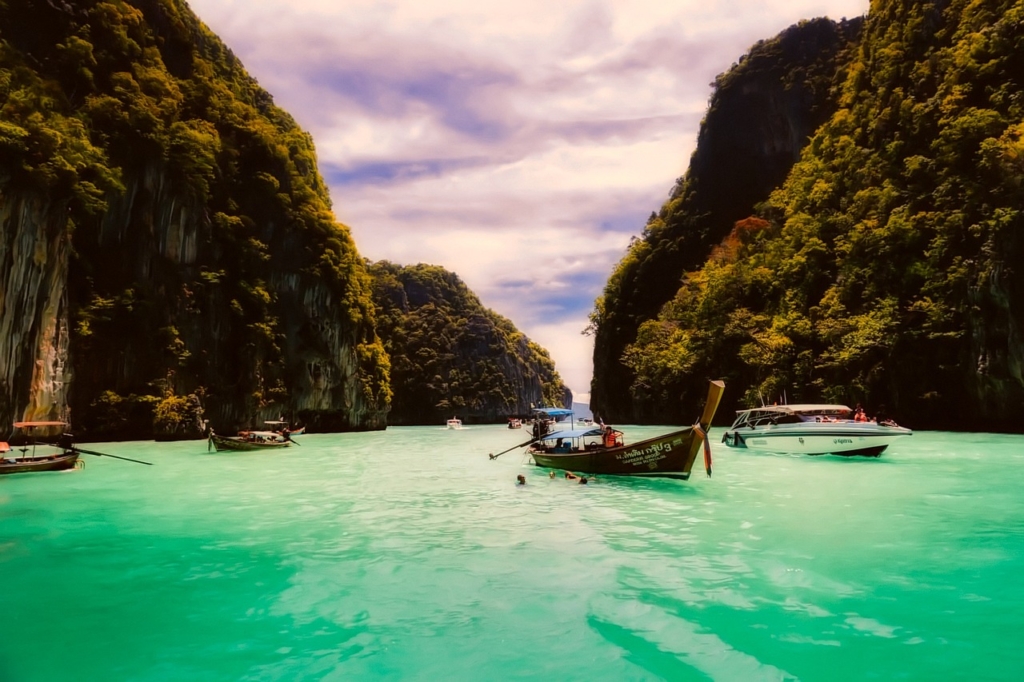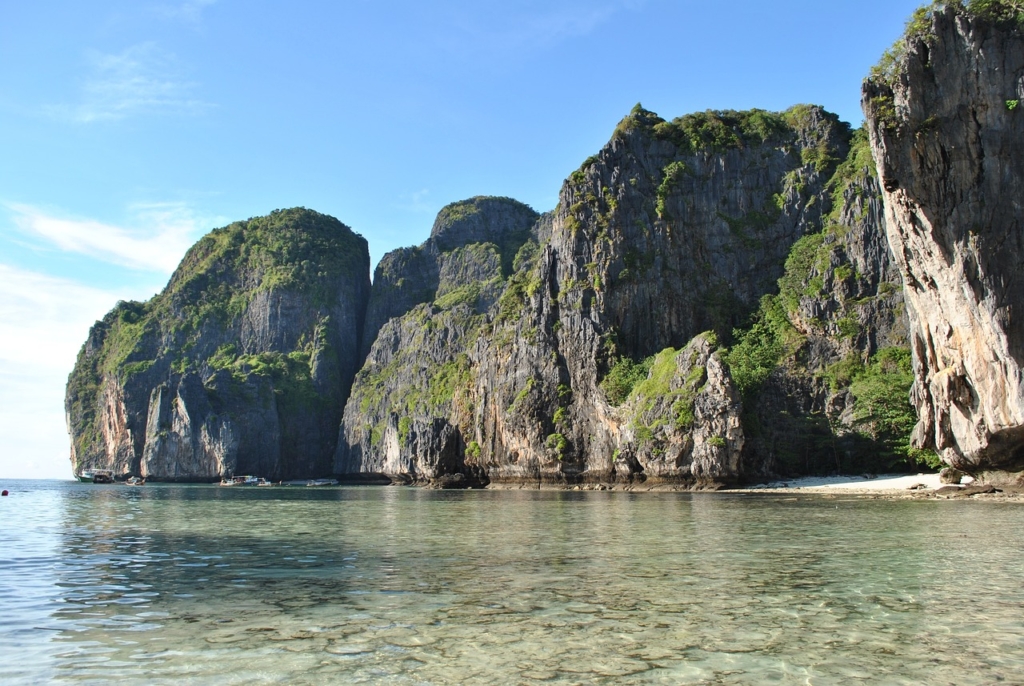Thailand Country Guide




Why Should I/We Buy in Thailand
Buying property in Thailand presents numerous advantages, making it an appealing option for investors, retirees, and those seeking a holiday home in a tropical paradise. Here are some key points on why you should consider buying property in Thailand:
-
Affordable Cost of Living: Thailand offers a relatively low cost of living compared to many Western countries, making it an attractive destination for retirees and expatriates looking to stretch their retirement savings or live comfortably on a modest income.
-
Stunning Natural Beauty: From pristine beaches and lush tropical jungles to majestic mountains and picturesque islands, Thailand boasts breathtaking natural landscapes that appeal to nature lovers and outdoor enthusiasts.
-
Diverse Property Options: Thailand’s real estate market offers a wide range of property options to suit different preferences and budgets. Whether you’re looking for a luxury villa, beachfront condo, or traditional Thai-style house, you’ll find plenty of choices.
-
Strong Rental Market: With its popularity as a tourist destination, Thailand has a robust rental market, particularly in tourist hotspots like Bangkok, Phuket, and Pattaya. Purchasing a property for rental purposes can provide a steady stream of rental income.
-
Favorable Property Laws for Foreigners: While foreign nationals generally cannot own land outright in Thailand, they can legally purchase condominiums under certain conditions. This makes buying property in Thailand relatively straightforward for foreigners compared to other countries in the region.
-
Thriving Expat Community: Thailand has a large and diverse expatriate community, particularly in popular expat destinations like Bangkok, Chiang Mai, and Phuket. This makes it easier for newcomers to integrate into the local community and settle into their new homes.
-
World-Class Healthcare: Thailand is renowned for its excellent healthcare system, with modern hospitals and medical facilities staffed by highly trained professionals. Expatriates and retirees can access quality healthcare services at a fraction of the cost compared to many Western countries.
-
Rich Cultural Heritage: Thailand’s rich cultural heritage, vibrant festivals, and historical landmarks provide endless opportunities for exploration and discovery. Living in Thailand allows you to immerse yourself in a fascinating blend of tradition and modernity.
-
Warm Climate: Thailand enjoys a tropical climate with warm temperatures year-round, making it an ideal destination for those seeking sunshine and outdoor activities, whether it’s lounging on the beach, hiking in the mountains, or exploring bustling markets.
-
Excellent Infrastructure: Thailand boasts modern infrastructure, including well-maintained roads, reliable public transportation systems, and high-speed internet connectivity. This ensures a high quality of life and easy access to essential services for residents.
-
Friendly Locals: Thais are known for their warm hospitality and friendly demeanor, making Thailand a welcoming and inclusive destination for expatriates and visitors alike.
Whether you’re looking for a retirement haven, a second home, or an investment property, Thailand offers a wealth of opportunities and an enviable quality of life in a stunning tropical setting. With its attractive property market, favorable living conditions, and vibrant culture, Thailand continues to be a top choice for property buyers from around the world.
Buying Process in Thailand
The process of buying property in Thailand involves several steps, and understanding the legal requirements, taxes, and fees is crucial for a smooth transaction. Here are some key points on the buying process in Thailand, along with information on taxes and fees:
-
Legal Consultation: Engage a reputable lawyer with expertise in Thai real estate law to guide you through the buying process, conduct due diligence, and ensure compliance with local regulations.
-
Property Search: Research and identify properties that meet your criteria, whether it’s a condominium, villa, land, or commercial property. Consider factors such as location, amenities, and budget.
-
Negotiation and Offer: Once you’ve found a suitable property, negotiate the price and terms of the sale with the seller or their representative. Once both parties agree, you’ll proceed to make an offer in writing.
-
Reservation Agreement: Upon acceptance of your offer, you may be required to sign a reservation agreement and pay a reservation fee to secure the property. This fee is typically non-refundable but will be deducted from the final purchase price.
-
Due Diligence: Your lawyer will conduct due diligence on the property, including verifying ownership, checking for any encumbrances or legal issues, and ensuring compliance with zoning and land use regulations.
-
Purchase Agreement: Once due diligence is complete, you’ll sign a purchase agreement (often called the Sale and Purchase Agreement) outlining the terms and conditions of the sale, including the purchase price, payment schedule, and any contingencies.
-
Transfer of Ownership: To transfer ownership of the property, you’ll need to pay the full purchase price and any associated fees. The transfer of ownership is typically completed at the Land Department office, where the title deed will be transferred to your name.
-
Registration of Title Deed: After the transfer of ownership is complete, the Land Department will issue a new title deed (Chanote) in your name, confirming your legal ownership of the property.
Taxes & Fees
-
Transfer Fee: The transfer fee is typically 2% of the appraised value of the property and is split equally between the buyer and seller. However, the actual fee may vary depending on the location and type of property.
-
Stamp Duty: Stamp duty is levied at a rate of 0.5% of the property’s appraised value and is also split equally between the buyer and seller.
-
Withholding Tax: If the seller is a company, you may be required to withhold 1% of the selling price as withholding tax and remit it to the Revenue Department on their behalf.
-
Specific Business Tax (if applicable): If the property is sold within five years of acquisition, a specific business tax of 3.3% of the appraised value or the selling price (whichever is higher) may apply.
-
Legal Fees: Legal fees for conducting due diligence and facilitating the purchase typically range from 1% to 3% of the property’s purchase price, depending on the complexity of the transaction and the services provided.
-
Agent’s Commission: If you use a real estate agent, their commission is typically around 3% to 5% of the property’s purchase price.
-
Maintenance Fees (for condominiums): If you’re purchasing a condominium, you’ll be required to pay monthly maintenance fees for the upkeep of common areas and facilities.
Understanding the buying process and associated costs is essential for a successful property purchase in Thailand. Working with experienced professionals, including lawyers, real estate agents, and tax advisors, can help navigate the complexities of the Thai real estate market and ensure a smooth transaction.
Popular Areas in Thailand
Thailand, renowned for its stunning beaches, vibrant culture, and warm hospitality, offers a diverse range of destinations for property buyers seeking a slice of tropical paradise. From bustling cities to serene islands, each area has its unique charm and appeal. Here’s an overview of some of the most popular areas in Thailand for buying property, along with brief information on each:
1. Bangkok
- Characteristics: The bustling capital city of Thailand, Bangkok, offers a vibrant urban lifestyle, world-class amenities, and a rich cultural heritage. It’s a hub of business, entertainment, and culinary delights.
- Property Market: Bangkok boasts a diverse real estate market, with options ranging from luxury condominiums in the city center to spacious villas in suburban areas. Condos along the BTS (Skytrain) and MRT (Subway) lines are particularly popular.
2. Phuket
- Characteristics: Phuket is Thailand’s largest island, known for its stunning beaches, vibrant nightlife, and array of water sports and recreational activities. It’s a popular destination for tourists and expatriates alike.
- Property Market: Phuket offers a mix of luxury beachfront villas, condominiums, and hillside properties with panoramic views. Areas like Patong, Kata, and Kamala are sought after for their proximity to beaches and amenities.
3. Pattaya
- Characteristics: Located on the eastern Gulf coast, Pattaya is known for its lively nightlife, beautiful beaches, and family-friendly attractions. It’s a popular destination for both leisure and retirement living.
- Property Market: Pattaya offers a range of property options, from high-rise beachfront condos to private pool villas in gated communities. Areas like Jomtien and Wongamat Beach are popular among expatriates and retirees.
4. Chiang Mai
- Characteristics: Nestled in the northern mountains of Thailand, Chiang Mai is famous for its rich cultural heritage, tranquil surroundings, and cooler climate. It’s a haven for nature lovers, artists, and digital nomads.
- Property Market: Chiang Mai offers a more relaxed pace of life and affordable property prices compared to Bangkok and the southern islands. Options include traditional Lanna-style homes, modern condos, and rural retreats.
5. Koh Samui
- Characteristics: Koh Samui is a picturesque island in the Gulf of Thailand, known for its palm-fringed beaches, lush rainforests, and luxury resorts. It’s a popular destination for honeymooners, families, and wellness retreats.
- Property Market: Koh Samui offers a mix of beachfront villas, hillside properties, and luxury condominiums. Areas like Chaweng, Bophut, and Lamai are popular among property buyers for their amenities and investment potential.
6. Hua Hin
- Characteristics: Located south of Bangkok, Hua Hin is a charming seaside town known for its relaxed atmosphere, golf courses, and royal palaces. It’s a popular retirement destination for both Thais and foreigners.
- Property Market: Hua Hin offers a range of property options, including beachfront condos, private pool villas, and retirement communities. Areas like Khao Takiab and Pranburi are sought after for their tranquility and natural beauty.
7. Koh Chang
- Characteristics: Koh Chang is one of Thailand’s largest islands, known for its pristine beaches, lush rainforests, and marine national parks. It’s a quieter alternative to some of the more touristy islands.
- Property Market: Koh Chang offers a range of beachfront villas, boutique resorts, and eco-friendly retreats. Areas like White Sand Beach, Kai Bae, and Lonely Beach are popular among property buyers seeking tranquility.
8. Koh Phi Phi
- Characteristics: Koh Phi Phi is a stunning archipelago in the Andaman Sea, famous for its towering limestone cliffs, turquoise waters, and vibrant coral reefs. It’s a paradise for snorkelers, divers, and beach lovers.
- Property Market: While development is limited on the islands themselves, nearby areas like Krabi and Ao Nang offer luxury villas, condos, and beachfront properties with easy access to Koh Phi Phi and other nearby islands.
Each of these areas offers its own unique lifestyle and investment opportunities, catering to different preferences and budgets. Whether you’re looking for a bustling urban center, a tranquil beach retreat, or a mountain hideaway, Thailand has something to offer for every property buyer. However, it’s essential to conduct thorough research, seek expert advice, and consider factors such as legal regulations, property prices, and rental potential before making a decision.
